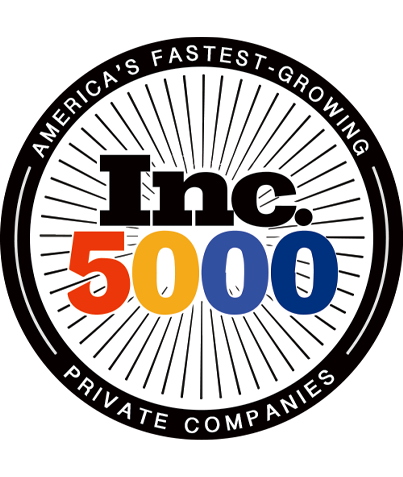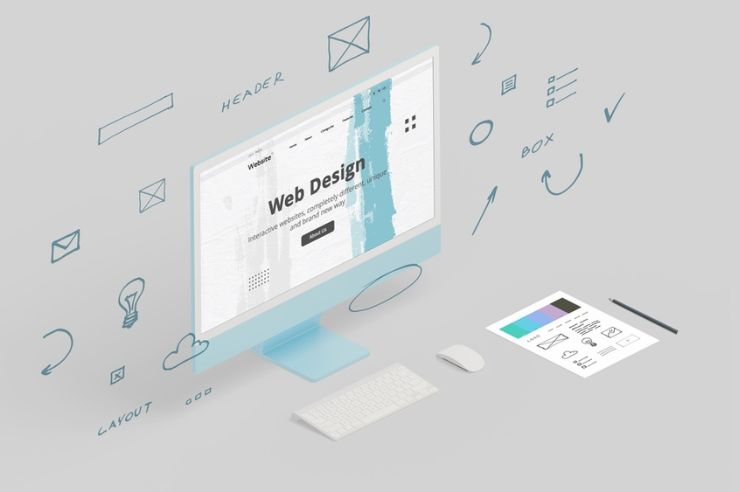Web design is one of, if not the most important, aspect of establishing and maintaining an online presence for any business. A well-designed website can attract potential customers, build brand credibility, and ultimately increase revenue. However, choosing the right one for your brand can be challenging with so many web design agencies.
In this post, we will discuss some key factors to consider when selecting a web design agency to help you make an informed decision and find the perfect partner to bring your vision to life.
Why Choosing the Right Web Design Agency Matters
A well-designed website is the first point of contact for potential customers, and it can make or break their decision to engage with your business. The design of your website not only impacts the user experience but plays a significant role in establishing and maintaining your brand identity.
Here are some statistics to highlight the importance of learning how to choose a web design agency:
- According to Zippia, 38% of people will stop engaging with a website if the content or layout is unattractive.
- Forrester states a well-designed website that creates a good user experience increases conversion rates by up to 200%.
These numbers emphasize the need for a visually appealing and user-friendly website. A poorly designed page can result in lost business opportunities, while a well-designed one can significantly increase your bottom line.
Factors to Consider When Choosing a Web Design Agency
To make the best choice for your business, here are some key factors to consider when selecting a web design agency.
Experience and Expertise
 When it comes to web design, experience and expertise are top factors to review when choosing an agency. A company with a strong track record of creating successful websites for clients in various industries is more likely to deliver high-quality results. You should also assess the technical skills of the agency’s team members, such as their proficiency in coding languages and knowledge of web design best practices.
When it comes to web design, experience and expertise are top factors to review when choosing an agency. A company with a strong track record of creating successful websites for clients in various industries is more likely to deliver high-quality results. You should also assess the technical skills of the agency’s team members, such as their proficiency in coding languages and knowledge of web design best practices.
Industry knowledge is another essential aspect to consider. An agency that has experience working in your specific niche will better understand your target audience and can create a website tailored to their needs.
Portfolio and Case Studies
Reviewing an agency’s portfolio and case studies is a great way to evaluate its capabilities. It will give you a sense of its design style, creativity, and ability to create functional websites.
When reviewing their portfolio, look for the overall design quality of their websites. Are they visually appealing? Do they have a clean and intuitive layout?
Pay attention to the functionality of the websites as well. Is it easy to navigate? Does it load quickly? These are all essential aspects that contribute to a positive user experience.
Diversity of work is a plus when deciding who to work with. An agency with experience in creating different types of websites can bring a fresh perspective to your project and cater to your specific needs.
Services Offered
When selecting a web design agency, it’s important to consider the range of services they offer. A comprehensive web design agency should provide web design and other critical services such as web development, SEO, and ongoing maintenance.
Outstanding web development when creating a functioning website that delivers a seamless user experience is at the top of this list. When using an in-house team of developers, an agency can ensure your website is optimized for speed, security, and functionality.
SEO (Search Engine Optimization) is another vital service to look for in a web design agency. A well-designed website won’t be effective if it doesn’t appear in search engine results. Firms with SEO expertise can help improve your website’s visibility and drive organic traffic to your business.
Ongoing maintenance is also necessary for your website’s long-term success. A reputable web design agency should offer ongoing support and updates to verify your site remains functional, secure, and up-to-date.
Pricing and Budget
Pricing and budget are significant factors to consider when choosing a web design agency. Be sure to evaluate the organization’s pricing structure and ensure it aligns with your budget. Before making any decisions, request a detailed breakdown of their costs, including any additional fees or charges that may apply.
Transparency in pricing can help you avoid unexpected costs or hidden fees down the line. A reputable company should be open and honest about its pricing and willing to work within your budget if needed.
Client Reviews and Testimonials
 Client reviews and testimonials can provide valuable insights into an agency’s reputation and reliability. Before making a decision, be sure to research the agency online and read reviews on reputable websites such as Google, Trustpilot, or Clutch.
Client reviews and testimonials can provide valuable insights into an agency’s reputation and reliability. Before making a decision, be sure to research the agency online and read reviews on reputable websites such as Google, Trustpilot, or Clutch.
Be sure to look for authentic reviews from real clients. Pay attention to both positive and negative feedback to get a balanced understanding of the agency’s strengths and weaknesses. Also, note how the agency responds to negative reviews – do they promptly address and resolve issues? Their process can be indicative of their level of customer service.
You can also request testimonials from the agency’s previous clients to better understand their experience working with them.
Communication and Collaboration
Effective communication and collaboration are other crucial components for the success of any web design project. You must establish clear communication channels when working with an agency from the beginning.
Regular updates and progress reports are important to ensure everyone is on the same page and that the project is moving forward as planned. A reputable business should prioritize transparency with their clients, providing timely updates and promptly addressing concerns.
The company should be open to client feedback and suggestions and work collaboratively to bring the client’s vision to life. This approach can lead to a more personalized and tailored website that meets your needs and goals.
Understanding Their Design Process
Understanding the agency’s design process is necessary for your project to run smoothly and efficiently. A typical web design process involves several stages, starting with an initial consultation and ending with project delivery. It’s beneficial to clearly understand these steps to know what to expect at each stage.
The initial consultation is where you share your goals and ideas for the website with the agency. It helps them understand your vision and expectations for the project.
Next, they should conduct research and gather information about your target audience, industry, competition, and more. This crucial step lays the foundation for creating a successful website that resonates with your target audience.
Once the research is complete, they should move on to the design phase. They will create mockups to present their initial design concepts for your approval. These designs will then be refined and tweaked as needed to align with your vision.
After the design is finalized, development work begins. Their team of developers will bring the design to life by creating a functional website that incorporates all the necessary features and functionalities.
Finally, before project delivery, there should be a testing phase so everything works correctly and meets your expectations. Once approved, the website can go live, and ongoing maintenance services can commence.
Customization and Flexibility
Whether you have a specific theme or style in mind or want to incorporate certain features into your website, the agency should be flexible enough to accommodate these requests.
Additionally, as your business grows and evolves, you may need to make changes or updates to your website. A reputable company will be able to adapt and make necessary updates to keep your website current and aligned with your needs.
Questions to Ask a Web Design Agency
To help you ask the right questions and learn how to choose a web designer for your project, here are some essential questions to consider:
What is your experience in our industry?
It’s important to choose a company that has experience in your industry. Look for agencies that have successfully completed projects in your niche, as they will better understand your target audience and competition, leading to more effective designs for your website.
Can you provide references from past clients?
Asking for references from past clients allows you to gather feedback on the agency’s performance and reliability. Positive testimonials can give you confidence in their abilities and showcase their success with previous projects. Look for references that mention timely delivery, effective communication, and a satisfactory end result.
What is your approach to responsive design?
With the increasing use of mobile devices, having a responsive website is crucial for user experience and search engine rankings. Ask the agency about their approach to responsive design and how they ensure your website will function seamlessly on different devices and screen sizes. Look for companies prioritizing usability and accessibility in their designs, as this can greatly impact your website’s success.
How do you approach website aesthetics and usability?
Your website’s aesthetic appeal is important but should not compromise usability. Ask the agency about its design philosophy and how it balances aesthetics with functionality to create a visually appealing yet user-friendly website.
Can you showcase some examples of your recent web design projects?
Requesting to see the agency’s portfolio of recent projects can give you a better understanding of their capabilities and design style. Look for diversity in their portfolio, sharing their ability to cater to various industries and design preferences.
What is your process for understanding our brand and goals?
An effective designer will take the time to understand your brand, target audience, and business goals before starting on your project. The best businesses prioritize understanding their client’s unique needs and tailor their designs accordingly rather than taking a one-size-fits-all approach.
How do you ensure the website aligns with our brand identity?
Consistency is crucial in establishing a strong brand identity; your website should exemplify this. Inquire about their process for integrating your brand’s visual elements—logos, color schemes, and typography—into the web design to build a cohesive and consistent presentation.
What is your process for revisions and feedback?
Inquire about their revision and feedback process to align with your vision, which is faithfully translated into the final design. Seek agencies with well-defined steps for providing and integrating feedback throughout the design phase, ensuring you remain involved and informed at every stage.
How do you incorporate user experience (UX) design principles?
A website’s design should prioritize the user experience (UX) to give visitors a positive and enjoyable interaction with your site. It is important to know the approach of a website’s designer to incorporate UX design principles, such as user research, information architecture, and usability testing.
What is your approach to creating accessible websites?
It is crucial to select an agency that prioritizes creating accessible websites for all users, including those with disabilities. Understand their approach to web accessibility and ensure compliance with standards like the ADA.
How do you handle SEO in your web design process?
Understanding the agency’s ongoing support and maintenance approach is crucial after the website goes live because it needs constant updates, troubleshooting, and potential improvements. Look for companies that offer ongoing support and maintenance services to ensure your website remains functional and up-to-date in the long term. This will save you time and resources when managing your website post-launch. Additionally, ensure they have a clear process for addressing any issues that may arise and providing prompt assistance when needed.
What is your process for testing the website before launch?
Before launching a website, testing its functionality and usability across various browsers and devices is essential. Companies should thoroughly examine performance factors, such as page loading speed, and usability aspects, like identifying broken links or malfunctioning buttons. Proper testing can prevent potential issues and ensure a seamless user experience for visitors.
How do you handle post-launch support and maintenance?
Understanding the agency’s ongoing support and maintenance approach is crucial after the website goes live because it needs constant updates, troubleshooting, and potential improvements. Look for companies that offer ongoing support and maintenance services to ensure your website remains functional and up-to-date in the long term. This will save you time and resources when managing your website post-launch. Additionally, ensure they have a clear process for addressing any issues that may arise and providing prompt assistance when needed.
Can you explain your pricing structure and what’s included?
When contracting a web design agency, you should thoroughly understand the pricing structure and included services. The agency should offer a transparent pricing model, whether it’s a fixed package price or an hourly rate, clearly outlining what services are covered in that cost.
Why Choose Oyova for Your Web Design Needs?
Oyova is a leading web design agency specializing in creating visually stunning and user-friendly websites. With over 10 years of experience, our team has the expertise and knowledge to deliver customized solutions for your unique business needs. From small businesses to large corporations, we have helped numerous clients achieve their online goals through our comprehensive web design services.
One key benefit of partnering with Oyova is our focus on user-centered design. We understand that a website’s success relies heavily on its intuitive and engaging user experience. That’s why we incorporate UX design principles throughout the entire process, from initial research to final testing, to ensure your website looks great and functions seamlessly for your visitors.
Additionally, our team stays up-to-date with the latest design trends and technologies to provide cutting-edge solutions for our clients. We also prioritize web accessibility and SEO best practices in our designs to help maximize your website’s reach and impact.
But our services don’t end when your website launches. Our post-launch support ensures that your site continues to perform at its best, providing peace of mind and freeing up your time to focus on other aspects of your business.
Partnering with Oyova means having a dedicated team working to bring your vision to life and help your brand succeed online. To learn more about our web design services, contact us today and let Oyova take your online presence to the next level!
Our Awards













